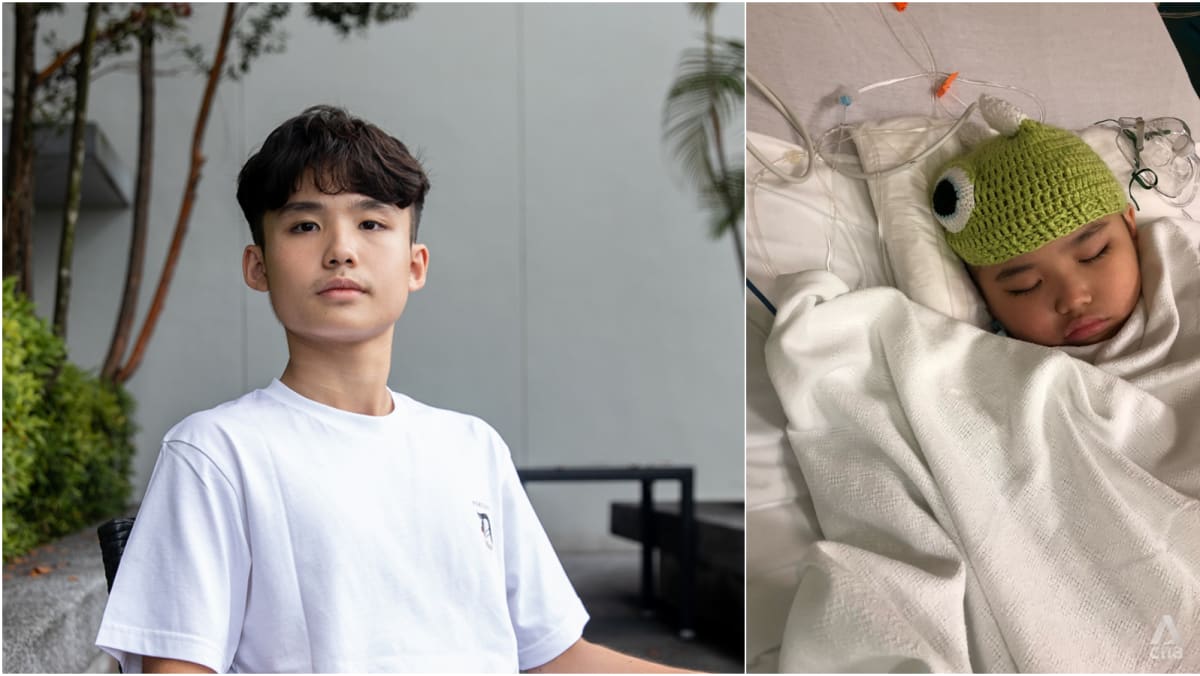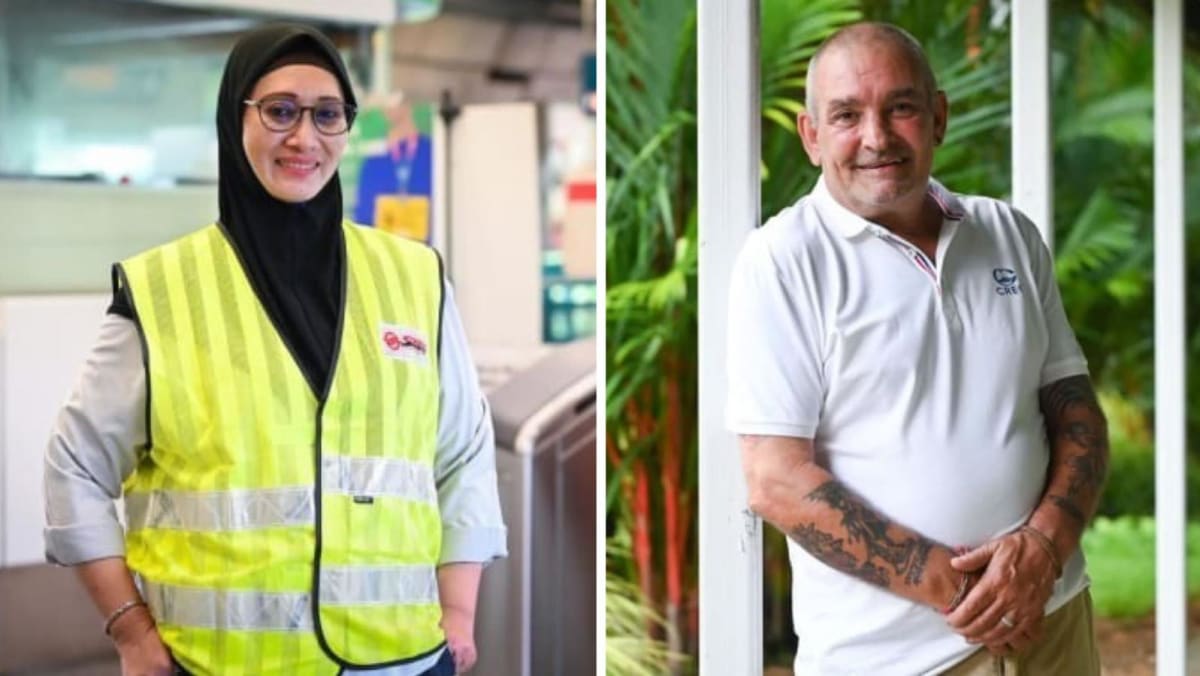‘GIVE IT THE BEST CHANCE POSSIBLE BECAUSE REGRET IS PERMANENT’
When I asked her if she and her lawyer husband have always wanted children, she was seated on a white rattan settee that her late parents received as a wedding gift.
Dressed in a white cardigan and a flowy orange dress that makes it difficult to spot her small baby bump, Glenda replied that they have yearned for a family since they were married in 2014.
Their “incredible childhoods” made them both want to share their life with “mini Justins and Glendas”.
“The minute we got married was when we started trying,” she said, adding that they knew they were “late to the game” since she was 41 and he was 38 then.
So she did what she could to give herself the best possible chance of conceiving — first cutting out alcohol and caffeine, and then exercising to stay fit.
She added that there was also the whole “rigmarole” of checking her temperature monthly to find out when she was ovulating, going to a traditional Chinese medicine practitioner for medicine and acupuncture, and checking a mobile application designed to understand her cycle and fertility.
“It was sex-on-demand,” she said with a laugh. To this, Mr Chan, who was sitting beside his wife during the interview, quipped: “Not so great for romance … and the whole house smelled like a medicinal hall.”
After two unsuccessful years, the couple turned to IVF, which involves stimulating a woman’s body to produce more eggs than usual, extracting those eggs and then exposing them to sperm in a petri dish before transferring a healthy fertilised embryo into the patient.
The science behind this may sound infallible, but the success rate for a woman over 40 years old hovers around 20 per cent. It gets slimmer every year, sinking close to zero at the age of 45.
In the last decade, Glenda said, they have knocked on almost every door and have seen six doctors, including two who were overseas.
They changed doctors “like changing socks”, heading to a new one every time they heard about a new procedure or technology being used.
“To give you some context, in the time that we’ve been trying, one of our gynaecologists retired,” Glenda said, adding that they have spent hundreds of thousands of dollars and have taken numerous tests for everything under the sun.
Mr Chan jumped in to explain: “We wanted to give it the best chance possible. Because, you know, regret is permanent.”
When I asked how many IVF procedures she has done, she was a bit hazy on the details, but eventually settled on seven fresh cycles and three frozen as her answer.
A fresh cycle is when eggs are extracted and used for a procedure, while a frozen cycle involves thawing previously fertilised embryos for the transfer.
I’m not at all surprised with her inability to recall.
Years of IVF procedures mean a blur of doctors’ appointments, blood tests, pinching your belly fat (this gets easier with time because the medication sometimes causes weight gain) and icing the fat before injecting yourself at specific times every day with various medications measured out of vials.
This is apart from the probing and prodding by doctors. So unless all this results in a healthy newborn, they are details you’d rather forget.














